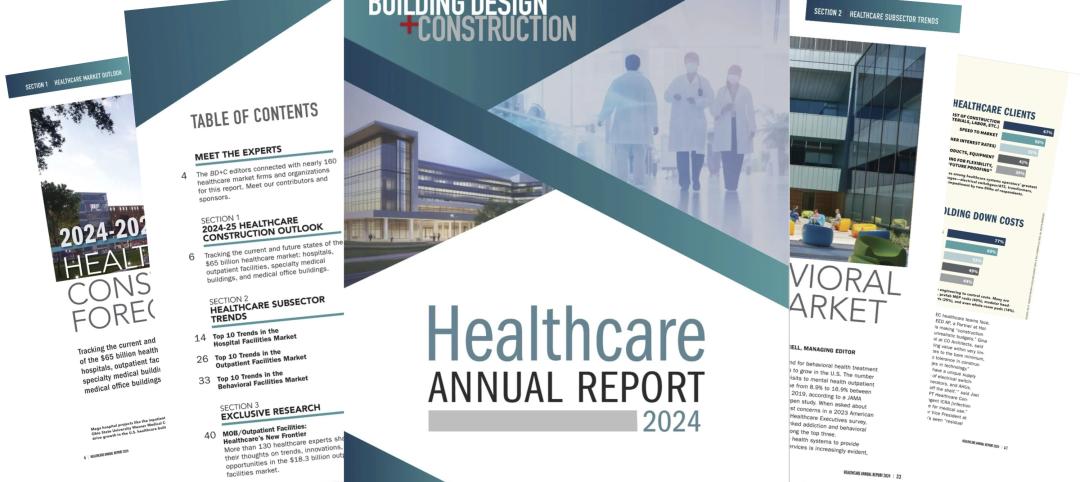Perkins Eastman and BLT Architects (BLTa) have recently announced their merger, effective February 1, 2022.
Perkins Eastman, which now has 1,100+ employees in 24 studios worldwide, has worked on projects on five continents in 60 countries. Its award-winning portfolio reflects expertise in healthcare, senior living, large-scale mixed use, higher education, K-12, hospitality, and workplace design as well as planning, urban design, and strategic consulting. BLTa, now known as “BLTa—A Perkins Eastman Studio,” has built an exceptionally strong integrated architecture and interior design firm of 41 professionals with deep roots in Philadelphia. With a studio in Pittsburgh for the last 27 years, Perkins Eastman has built a strong presence throughout Pennsylvania, especially in Western Pennsylvania. The addition of the BLTa studio strengthens the firm’s presence in the eastern part of the state as well. In merging with BLTa, Perkins Eastman enhances its expertise in mixed-use, multi-family residential, hospitality, workplace, higher education, historic renovations, adaptive reuse conversions, resorts and gaming, and transit-based projects.
“We are very pleased that BLTa has joined us and we now have a strong partner in Philadelphia. We have had the opportunity to get to know BLTa over the last several years and believe they bring significant skills and experience to our national practice. Moreover, we have always had important clients in Philadelphia, eastern Pennsylvania, and the adjacent states, and with BLTa we can now better serve those that want a combination of our national expertise combined with experienced local delivery and service,” says Brad Perkins, FAIA, chairman and co-founder of Perkins Eastman.
“We are thrilled to be merging with Perkins Eastman,” says Michael L. Prifti, FAIA, managing principal of BLTa, who joined the firm in 1982, back when it was known as Bower Lewis Thrower/Architects. “This union will give us the opportunity to serve our national clients in jurisdictions where we don’t currently practice. Perkins Eastman has new markets we’ve never touched. And with more feet on the ground, we can more easily and geographically serve our clients,” he says. Prifti also notes this merger will give BLTa’s architects and designers opportunities to diversify their projects and continue to grow as professionals.
Recent award-winning properties within the BLTa portfolio include: The Stephen Girard Building, where the firm revealed and preserved elegant design elements, integrating a 236-key Canopy by Hilton hotel within East Market, the one-million sf, ongoing transformation of a three square block area; The Bourse, a 380,000 sf adaptive reuse renovation of the first commodities exchange hall in the United States; and One City, an adaptive reuse project that converted an 1899 Renaissance Revival office building into a market-rate apartment building. Each of these properties won a Grand Jury 2021 Preservation Achievement Award given by the Preservation Alliance for Greater Philadelphia. The Stephen Girard Building and One City also won AIA Philadelphia Awards in the Historic Preservation/Adaptive Reuse Built category, and The Bourse won AIA Pennsylvania’s top prize – a Silver Medal. Hospitality Design magazine named Live! Casino and Hotel Philadelphia among the Best Hotel Openings of 2020. Live! Casino Pittsburgh, another BLTa design, also opened in 2020.
Shawn Basler, co-CEO and executive director of Perkins Eastman, notes that combining Perkins Eastman’s 40 years of global experience with BLTa’s 60 years of local expertise and relationships creates a powerful combination. “They’ll be able to draw on our well-established market credibility and resources, as well as geographic reach, while we’ll be able to tap into their deep knowledge of the Philadelphia metropolitan region along with their considerable expertise.”
Related Stories
Codes and Standards | Jul 15, 2024
New York City code update changes definition of a major building
Changes affecting how construction projects in New York City are permitted will have significant impacts for contractors. On Dec. 11, the definition of a major building in the city’s code will change from 10 stories to seven, or 75 feet. The change will affect thousands more projects.
Adaptive Reuse | Jul 12, 2024
Detroit’s Michigan Central Station, centerpiece of innovation hub, opens
The recently opened Michigan Central Station in Detroit is the centerpiece of a 30-acre technology and cultural hub that will include development of urban transportation solutions. The six-year adaptive reuse project of the 640,000 sf historic station, created by the same architect as New York’s Grand Central Station, is the latest sign of a reinvigorating Detroit.
University Buildings | Jul 11, 2024
3 considerations for designing healthy, adaptable student dining
Amanda Vigneau, IIDA, NCDIQ, LEED ID+C, Director, Shepley Bulfinch, shares three ways student dining facilities have evolved to match changes in student life.
Healthcare Facilities | Jul 11, 2024
New download: BD+C's 2024 Healthcare Annual Report
Welcome to Building Design+Construction’s 2024 Healthcare Annual Report. This free 66-page special report is our first-ever “state of the state” update on the $65 billion healthcare construction sector.
Transit Facilities | Jul 10, 2024
Historic Fresno train depot to be renovated for California high speed rail station project
A long-shuttered rail station in Fresno, Calif., will be renovated to serve as the city’s high speed rail (HSR) station as part of the California High-Speed Rail Authority system, the nation’s first high speed rail project. California’s HSR system will eventually link more than 800 miles of rail, served by up to 24 stations.
Government Buildings | Jul 8, 2024
GSA adopts new accessibility guidelines for federal properties
The U.S. General Services Administration (GSA) adopted a new rule with new accessibility guidelines for federal buildings. The rule establishes that pedestrian facilities in the public right-of-way are readily accessible to and usable by people with disabilities.
Office Buildings | Jul 8, 2024
Office vacancy peak of 22% to 28% forecasted for 2026
The work from home trend will continue to put pressure on the office real estate market, with peak vacancy of between 22% and 28% in 2026, according to a forecast by Moody’s.
Virtual Reality | Jul 8, 2024
Can a VR-enabled AEC firm transform your project?
With the aid of virtual reality and three-dimensional visualization technologies, designers, consultants, and their clients can envision a place as though the project were in a later stage.
Green | Jul 8, 2024
Global green building alliance releases guide for $35 trillion investment to achieve net zero, meet global energy transition goals
The international alliance of UK-based Building Research Establishment (BRE), the Green Building Council of Australia (GBCA), the Singapore Green Building Council (SGBC), the U.S. Green Building Council (USGBC), and the Alliance HQE-GBC France developed the guide, Financing Transformation: A Guide to Green Building for Green Bonds and Green Loans, to strengthen global cooperation between the finance and real estate sectors.
Codes and Standards | Jul 8, 2024
New York State building code update would ban fossil fuels in new buildings
New York’s Building Code Council is set to include the All-Electric Buildings Act in its 2025 code update. The Act would ban natural gas and other fossil fuels in new buildings.

















